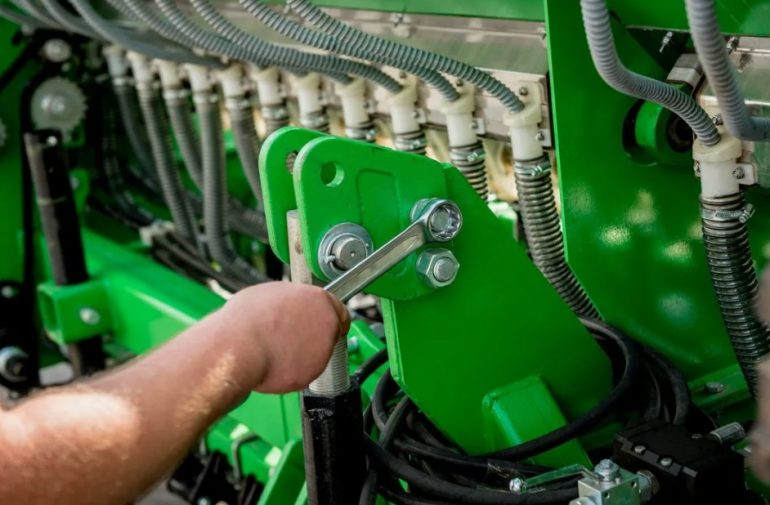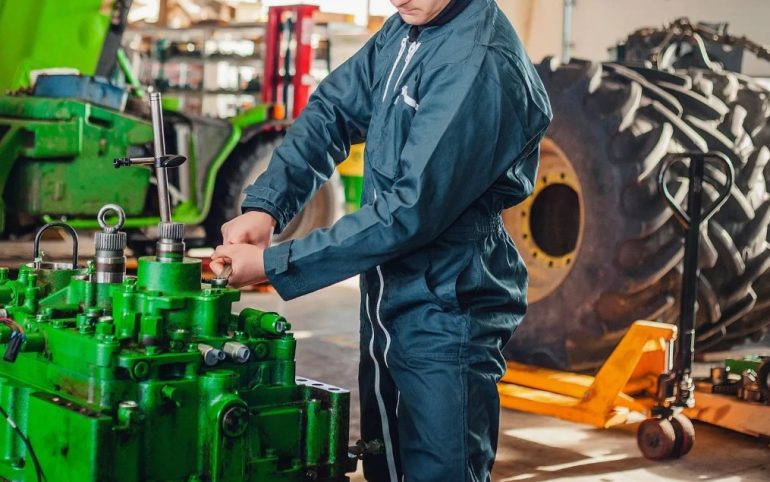
Agricultural Machinery Professions
The development and usage of agricultural machinery transform everyday life on farms around the globe. Constant innovation and technical upgrades keep equipment efficient and reliable. Land cultivation, harvesting, irrigation, and transport all require a variety of machines and dedicated professionals. Employment in this field offers unique opportunities for those who enjoy working with both engineering and production. Whether you are interested in design, repair, or technology integration, the path can be exciting and rewarding. Searching for growth in this industry opens up many directions for personal and professional development.
Paths for Growth and Specialization
Key Roles and Day-to-Day Functions
Engineers, technicians, and mechanics form the backbone of agricultural equipment maintenance and creation. Individuals in these careers design new machinery, maintain in-use equipment, and solve engineering challenges. Daily tasks might include designing solutions for fieldwork, interpreting technical drawings, assembling and testing new devices, and conducting repairs. Collaboration with other experts, farmers, and manufacturers is common, as well as researching effective solutions for the challenges encountered.
- Design and improvement of farm tools and vehicles
- Installation and repair of water supply systems for crop growth
- Maintenance and troubleshooting of diesel engines and hydraulic mechanisms
- Advising on new technologies for improved effectiveness
- Education and training of equipment operators
Many farms now utilize unmanned vehicles and smart tools for planting and harvesting. This accelerates production and reduces manual labor significantly.
Education and Skills for Success
Preparation and Continuing Learning
To pursue a career in the agricultural machinery field, a technical education is highly recommended. This includes subjects such as mechanics, engineering, mathematics, physics, and information technology. Additional courses in agriculture or environmental science help professionals understand specific demands of today’s farming. On-the-job training and apprenticeships offer hands-on experience, while certification programs further enhance skills. Participation in technical workshops ensures knowledge stays relevant and up-to-date.
Analytical thinking and teamwork are equally important for engineers and mechanics as technical knowledge itself.
Diverse Opportunities in Agricultural Machinery
Roles Beyond Engineering and Repair
The sphere of agricultural mechanics does not stop at traditional jobs. There are diverse career paths that include sales, support, technical instruction, and project management. Companies seek specialists who can advise clients, develop client relationships, or manage large infrastructure projects. Positions may also be available in environmental monitoring, service representation, and precision agriculture technologies. Each direction offers unique challenges and a chance to contribute to the future of farming.
Tips and Recommendations for Beginners
For those starting out, explore internships and practical work during studies. Ask questions and seek out mentors who specialize in equipment maintenance or development. Stay engaged with innovations in robotics, GPS-based equipment, and green energy solutions for agriculture. Attend fairs and exhibitions to see top machinery in action and learn what skills are most valuable today.
- Take an interest in sustainable and practical solutions for farming machines
- Participate in training sessions for hands-on learning
- Follow the newest developments in agricultural technology
Challenges and Rewards
Agricultural machinery specialists help solve major farming challenges, ensuring stable harvests and contributing to food production reliability. The need for complex equipment maintenance and design is growing as farms expand and adopt automated systems. Those who master new tools and approaches become highly valued in this field. The work often includes time outdoors, problem-solving, and a blend of physical and mental activity. Teamwork and adaptability are necessary for success as demands and technology change rapidly.
The Impact of You in Agricultural Machinery
Anyone entering top career paths in agricultural mechanics can play a significant role in making farming more effective and sustainable. The roads to specialization are many, offering movement along technical, managerial, and educational directions. Skills developed in this sector open doors not only on farms, but also in manufacturing, research, and sales. Every new project or repaired system drives agricultural success forward. A well-chosen career here means direct involvement in progress and innovation day after day.
Those seeking to work in the machinery sector should explore their interests and adapt quickly to new advances. Top Career Paths in Agricultural Mechanics offer ways to develop as both an expert and a problem solver. Step-by-step learning builds practical skills that are always in demand. Every new season brings new challenges and valuable experiences. By choosing these paths, you open the door to ongoing growth and personal satisfaction.

